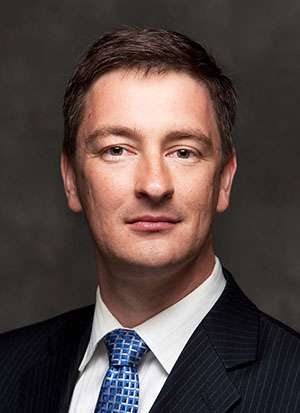The Libertarian Party's Very Good Year

Nicholas Sarwark was elected to his second term as chair of the Libertarian Party's National Committee at the party's Orlando convention in May. At the same event, former GOP governors Gary Johnson and William Weld were chosen as the Libertarian presidential ticket; the pair were soon getting as much as 11 percent of the vote in some national polls. Senior Editor Brian Doherty interviewed Sarwark by phone in June about his party's potential banner year.
Q: What are some objective signs of the L.P.'s success?
A: Revenue is nearly double this year compared to the same time in 2012. [Dues-paying] membership numbers have risen around 46 percent. Our presidential candidate is consistently polling above 10 percent. They are receiving a level of media attention we just have not seen. The media are treating them like serious candidates, like on the CNN town hall where they got hit with a victim of the [Orlando nightclub] Pulse shooting and a mom whose kid was brain-damaged by heroin. That's what you have to expect if you're being treated seriously. Johnson and Weld are the most serious, credible, sane ticket available, with more executive experience than the major party candidates combined.
Q: At that town hall, Johnson gave an answer about legalizing drugs that didn't jibe with the party platform, saying he's only for legalizing marijuana. Was that a problem?
A: That town hall was for us to introduce ourselves to the American people. Johnson and Weld were not talking to Libertarians, but to everyone else, and in talking to non-Libertarian friends, that town hall was a great success. The impression people got was that these are the real deal, that this is not a bullshit ticket.
Q: How connected are the party and the presidential campaign?
A: We cooperate closely on ballot access. We have a shared interest in having them be on the ballot in all 50 states, and we are still on track to do it. But [the national party] does our own messaging, which is often in synergy with the presidential candidate but maybe not always. One of the party's biggest expenses is ballot access. About 20–25 percent of our take goes to jumping through hoops the major parties create to make things hard on challengers.
Q: Why does this seem like such a good year for the L.P.?
A: Our candidates are sensible and sane and have as a fundamental principle the idea "Don't hurt anyone and don't take their stuff," which resonates. But people won't change until the pain of the status quo is sufficient to allow [people] to consider change, and that's what the unpopularity of [Hillary Clinton and Donald Trump] is doing. After that first time voting Libertarian and the world hasn't ended and people aren't dying in the streets, it will be easier to vote L.P. again.
I keep hearing people say they're thrilled to cast a vote for something they believe in rather than just against someone. Coattails can go both ways. Having a menu of down-ticket candidates makes voters see an "L" in many races. It shows we are serious and makes it easier to pull the lever. We're not a one-shot or a cult of personality. We can even become the second party in lopsided states [where one of the majors doesn't compete in many races].
We have two sitting state legislators [in Nevada and Nebraska] who switched parties. This could be the first signs of an exodus to us [A third did so in Utah in July] when people realize a party that encompasses Rand Paul and Trump is not a real coalition—it's nothing. [Libertarian-leaning] Republicans are constantly looking to see if a knife is being put in their back by their own party.
This article originally appeared in print under the headline "The Libertarian Party's Very Good Year."


Show Comments (1)